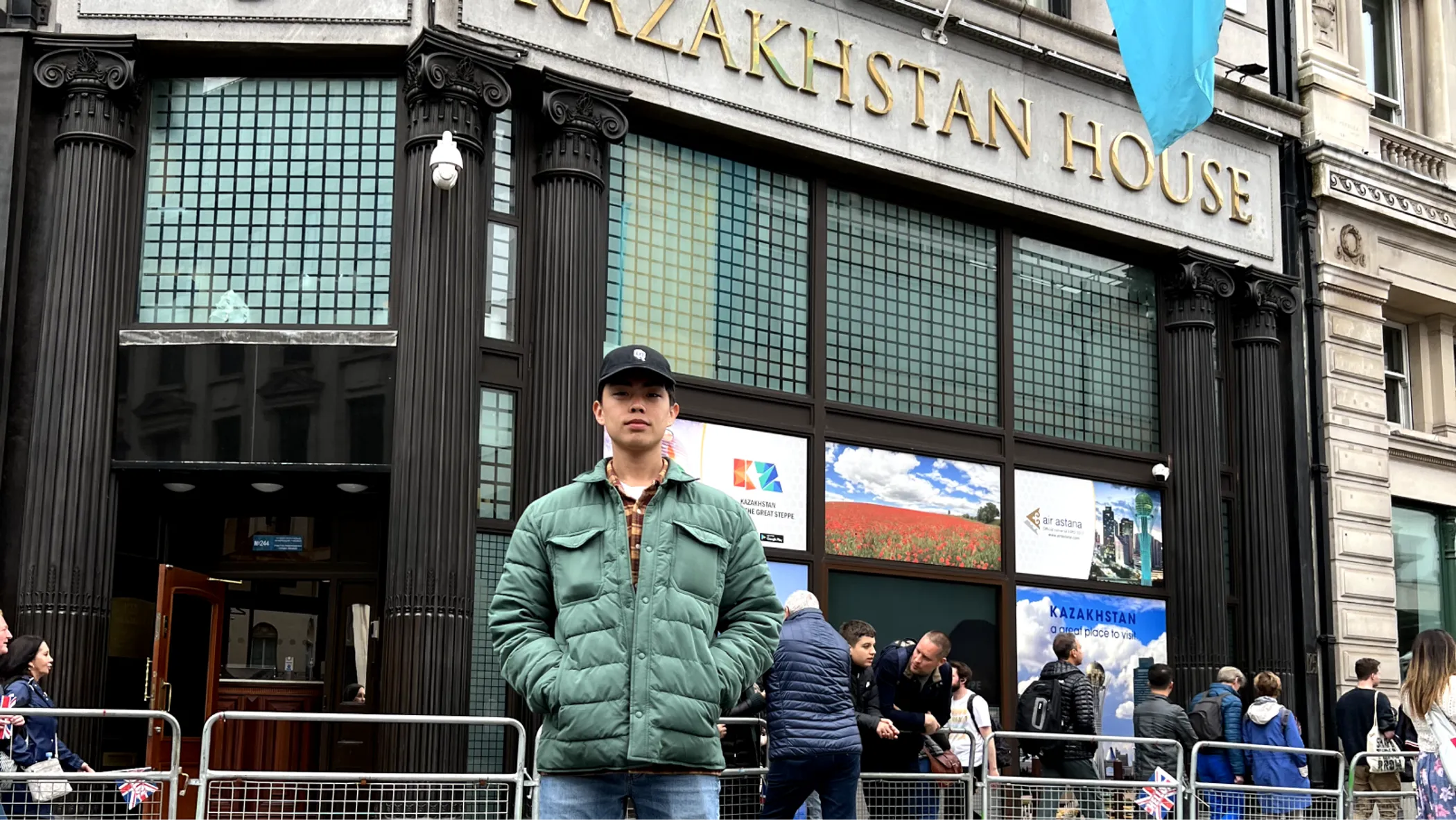For those in the tech industry, FAANG represents a career pinnacle. The acronym stands for five best-performing American technology companies: Meta (formerly Facebook), Apple, Amazon, Netflix, and Alphabet (formerly Google). Naturally, getting hired by one of the Big 5 is a feat akin to winning a lottery–but this one requires more talent and skills.
The good news is that we are seeing more specialists from Kazakhstan in those companies. One of them is Galymzhan Kenzhetayev from Almaty, who works for Meta as a software engineer. At Spark AR, the team based in London, he develops tools used in augmented reality and products for Meta platforms.
Galymzhan told a QazMonitor correspondent about his experience in London, including what sets apart tech companies in the West, and whether expectations met reality.

META 2:0 Amazon
How were you able to decide between the FAANG companies?
Location played a factor in my decision between Google, Meta, and Amazon. I wanted to work specifically in London, but Amazon offered me a place somewhere else. Another factor was the salary. If they offer you a job in a smaller city, where the living standards are lower, the salary will reflect that.
After talking to industry insiders, I realized that Amazon isn’t really an IT company and is more business-oriented. Meta follows a certain system where everyone is equal, in some sense. In Amazon, it all comes down to the team. The tools and approaches used are all up to the team and the manager.
I heard the work-life balance was better at Meta than Amazon–which is the main reason why I chose Meta. Plus, we have an office here that focuses on AR development, and that is important for me.

Is there a Kazakh IT community in London?
I've met people from uni whom I knew back in Kazakhstan. Our country has a very small market, so the IT circle is also small. People just know each other.
There's a sizeable community of Kazakh IT specialists in London. I stay in contact with a couple of people. They all work at different companies: Google, Amazon, Bloomberg. Besides that, we have a lot of our students here studying at British universities. They regularly organize hangouts, and I sometimes join them.

Life in London
How would you describe London?
It’s comfortable to live here. As in, I’m young and don’t have a family, so I don’t have to deal with issues like kindergarten, school, and all that. Public transport is accessible and the salary lets me live comfortably.
Though I have to say, the prices here are really high. I am able to save up here less than I would if I worked in Kazakhstan.
Another thing is that there is so much diversity—people are so different. Some dress openly, some don’t. There is so much freedom here. I had to get used to it since in Kazakhstan everyone acts and dresses pretty much the same. In London, you can walk around the city in flip-flops and no one will bat an eye.
I like the fact that there's always something going on here. I like the theaters and the various exhibitions and events. This is what I dreamed of as a kid.

‘You can’t rely on your hard skills alone’
Would you say the job lived up to your expectations?
I had some expectations; I prepared for this job for a long time. I gathered all kinds of information to help me visualize the result I wanted to see. There are a lot of videos on Youtube with titles like “A day in the life of a software engineer in…” and it would be somewhere like Singapore. I watched all of these videos, and now I can say that, yes, my hopes were met.
I got what I wanted, though big companies have their problems, too. I think I was a little naïve to believe big companies are so much better than small ones. In reality, each has its own advantages.
It's safe to say that there’s more bureaucracy in major companies. It’s also harder to stand out. Small companies have less people, which means you can easily offer your ideas for discussion.

Have you personally encountered these problems?
Yes, I have. It's hard to get noticed here, but I guess it all depends on your soft skills.
This is what I think distinguishes large tech companies in the West. You can’t rely on your hard skills alone to move up the career ladder—you need to have communication skills.
I haven’t encountered this in Kazakhstan, not on this scale, at least. In my previous job, we got feedback once every six months, or even once a year. Here, you can ask for weekly or even daily feedback. It would be cool to implement this in our country. It would really boost our development.
Right now, there’s still so much to learn here, and, of course, I would like to travel to and live in the U.S. and other European countries. But, ultimately, I would like to return to Kazakhstan.










